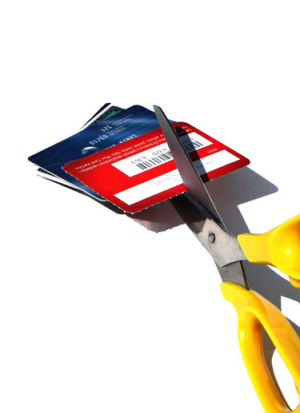Swiping cards, wiping scores
November 11, 2009
The cost of a college education is a burden for most students’ pocketbooks. Tuition alone racks up thousands of dollars a year, not including the additional cost of books and living expenses. But in addition to the financial strain that comes with higher education, students are increasing their financial burdens of their own accord, by going into credit card debt.
According to the Council of Economic Education, the number one reason that students drop out of college is credit card debt. While the freedom of plastic can be liberating, it can also be dangerous for the financial standing of students, not to mention having a drastic effect on credit scores.
College is typically the time when young adults begin to establish credit. A decent credit score is essential for major purchases, like buying a car or house. Renting agencies even look at credit scores before renting to potential leasers. The problem lies when students go overboard with credit spending, spiraling into debt that they can’t pay back.
Perhaps part of the attraction of credit cards is that they work as a temporary fix for financial problems. Student Megan Kirkhart can attest to this as she immediately considered taking out a credit card to pay for her study abroad trip to Jamaica.
“With all of the expenses that I already have, my bank account can’t really take a huge hit right now,” she said, “I know that when I get my student loan in January, I’ll be able to pay off the expenses of the trip, so a credit card would allow me to postpone the payment for the trip until I could afford it.”
However, Kirkhart discovered that the chances were unlikely that she would even get approved for a credit card before the Dec. 1 payment deadline, especially without a co-signer and opted against the plastic.
Tougher credit card restrictions are putting serious limitations on the availability of credit cards for college students. Many are instantly denied, mostly because they have established little to no credit, and if they are approved, it is only if they find someone else with established credit to co-sign in case they cannot make payments later.
Amanda David has avoided plastic for that very reason.
“There are a couple reasons I don’t have a credit card. Mostly, I’m nervous that I would take advantage of the ability to use it and spend blindly and end up racking up a major bill. Granted I would probably be more aware of my spending habits but the slight chance of getting a little ‘swipe happy’ still exists,” David said.
Instead of using a credit card, David, like many other college students, uses a debit card, which can act like a check and withdraw directly from a checking account.
nFinanSe, a financial services company and provider of prepaid card solutions headquartered in Tampa, Florida, encourages the use of debit or prepaid cards for students as well. The company also encourages students to take advantage of discounts offered with student IDs, keep the eating out to a minimum and to purchase used books. All of these solutions can help students keep debt to a minimum without draining the bank account.
Credit card debt is easy to fall into, but difficult to get out of. Paying attention to the balance in the bank in addition to using a little common sense when it comes to finances can increase any student’s chances for a more debt-free transition into the work force after graduation.



